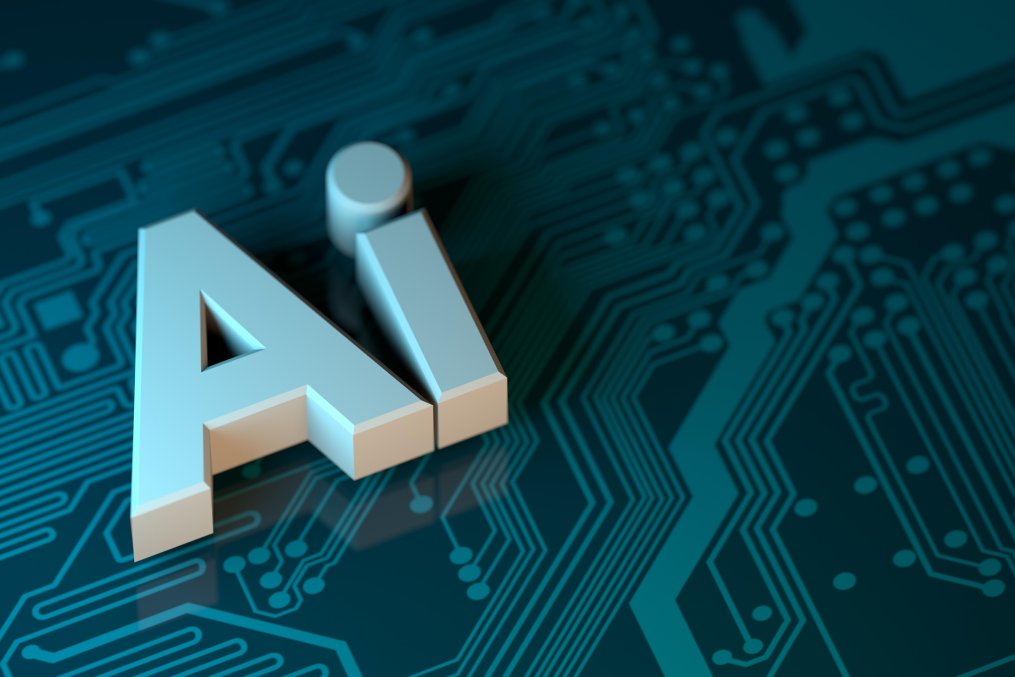As the field of technology evolves at a rapid pace, the convergence of Artificial Intelligence (AI) and DevOps has emerged as a game-changer for organizations seeking to streamline their software development and delivery processes. The integration of AI into DevOps practices offers immense potential to enhance efficiency, automate repetitive tasks, analyze complex tasks, and optimize decision-making.
In this blog post, we will explore how a DevOps team can leverage AI to maximize productivity, improve software quality, and drive innovation.
10 Ways a DevOps Team Can Maximize the Use of AI
1. Continuous Integration and Continuous Delivery (CI/CD) Pipeline Optimization
One of the key areas where AI can greatly benefit a DevOps team is in the optimization of the CI/CD pipeline. AI-powered tools can analyze vast amounts of data generated during the software development life cycle, identify patterns, and provide actionable insights. By leveraging AI, teams can automate the identification of bottlenecks, predict potential issues, and optimize resource allocation. This enables faster and more efficient software delivery while maintaining high-quality standards.
2. Intelligent Test Automation
Software testing is an essential aspect of the DevOps process, but it can be time-consuming and resource-intensive. AI can significantly enhance test automation by intelligently selecting test cases, generating test scripts, and performing automated regression testing. Machine learning algorithms can learn from historical test data, identify patterns, and prioritize tests based on their impact. AI-enabled testing tools can also simulate real-world scenarios, perform exploratory testing, and detect anomalies, resulting in improved test coverage and reduced time-to-market.
3. Predictive Analytics and Incident Management
AI can empower DevOps teams to proactively address potential issues before they impact production systems. By analyzing vast amounts of data, including logs, metrics, and user behavior patterns, AI algorithms can predict performance bottlenecks, security vulnerabilities, and other potential incidents. Business intelligence enables teams to take preventive actions, allocate resources efficiently, and reduce downtime. Additionally, AI-powered incident management systems can automatically detect and triage incidents, suggest remediation actions, and learn from past incidents to continuously improve system reliability.
4. Intelligent Deployment and Infrastructure Management
The deployment and management of infrastructure components can be complex and error-prone. AI can assist in automating these processes by providing intelligent recommendations for optimal infrastructure configurations, scalability, and resource allocation. AI algorithms can analyze historical data, system metrics, and usage patterns to predict demand, identify underutilized resources, and optimize the allocation of computing resources. This not only ensures efficient utilization of infrastructure but also helps reduce costs and improve system performance.
5. Chatbots and Virtual Assistants
AI-powered chatbots and virtual assistants can enhance collaboration and communication within DevOps teams. These intelligent agents can provide instant responses to common queries, assist in troubleshooting, and automate routine tasks. By leveraging Natural Language Processing (NLP) and Machine Learning (ML), chatbots can understand user queries and provide accurate information, freeing up valuable time for DevOps professionals to focus on critical tasks.
6. Data-Driven Decision Making
Data is a valuable asset in DevOps, customer intelligence and AI can help extract actionable insights from vast amounts of data generated throughout the software development process. AI algorithms can analyze data from various sources, including logs, metrics, and user behavior, to identify patterns, trends, and correlations. DevOps teams can use these insights to optimize processes, identify performance bottlenecks, and make data-driven decisions to improve software delivery and operational efficiency.
7. Intelligent Release Planning and Risk Assessment
AI can assist DevOps teams in release planning by analyzing historical data, market trends, and user feedback. By considering factors such as feature popularity, customer satisfaction, and market demand, AI algorithms can recommend optimal release plans and prioritize features. Furthermore, AI can perform risk assessments by analyzing dependencies, code complexity, and potential impact on the system, allowing teams to proactively mitigate risks and optimize release cycles.
Ready to supercharge your DevOps team with the power of Artificial Intelligence (AI)?
Contact Growth Hackers
8. Predictive Analytics for Capacity Planning
AI can enable predictive analytics for capacity planning by analyzing historical usage patterns and system metrics. Machine learning models can forecast future resource demands based on factors like user growth, seasonal trends, and expected changes in workload. DevOps teams can use these insights to optimize resource utilization, plan for scalability, and ensure sufficient capacity to handle future demands, avoiding potential performance issues and service disruptions.
9. Continuous Compliance and Security Monitoring
AI can assist in ensuring continuous compliance and security in DevOps processes. AI algorithms can analyze system logs, audit trails, and security events to identify potential vulnerabilities, detect malicious activities, and provide real-time alerts. By integrating AI-powered security tools into the DevOps pipeline, teams can automate security checks, conduct vulnerability assessments, and enforce compliance standards, thus reducing the risk of data breaches and ensuring adherence to regulatory requirements.
10. Intelligent Resource Forecasting and Cost Optimization
AI can assist in predicting resource usage and optimizing costs within the DevOps environment. By analyzing historical data, AI algorithms can forecast future resource demands and identify opportunities for cost optimization. DevOps teams can leverage AI-powered resource management tools to recommend appropriate resource provisioning strategies, identify underutilized resources, and optimize cloud service usage. This helps in achieving optimal resource allocation, cost savings, and efficient utilization of cloud infrastructure.
The integration of Artificial Intelligence into DevOps practices represents a transformative opportunity for organizations striving to optimize their software delivery processes. By leveraging AI-powered tools and techniques, DevOps teams can streamline the CI/CD pipeline, automate testing, predict incidents, optimize infrastructure, and enhance collaboration. However, it is essential to approach AI adoption in a thoughtful and strategic manner, considering factors such as data quality, model fairness, and ethical considerations. By harnessing the power of AI, DevOps teams can unlock unprecedented levels of efficiency, quality, and innovation, ultimately driving organizational success in today’s dynamic and highly competitive technological landscape.
Implementing AI in DevOps: Best Practices
Leveraging AI in your company requires careful planning and adherence to best practices. Here are the key considerations and best practices for implementing AI in DevOps to ensure seamless and successful integration.
1. Define Clear Objectives and Use Cases
Before diving into AI implementation, it is crucial to define clear objectives and identify specific use cases where AI can provide significant value. Collaborate with stakeholders to understand pain points, areas for improvement, and desired outcomes. By focusing on well-defined objectives, DevOps teams can avoid ambiguity and ensure that AI solutions align with business goals.
2. Gather High-Quality Data
High-quality data is the lifeblood of AI. DevOps teams should invest time and effort in gathering, cleaning, and organizing relevant data for AI models. Ensure data accuracy, completeness, and representativeness to ensure reliable results. Data should be diverse, capturing different scenarios and edge cases. Collaborate with data scientists to establish proper data collection and preprocessing pipelines.
3. Choose the Right AI Technologies
Selecting the right AI technologies is critical for successful implementation. Assess various AI techniques such as machine learning, natural language processing, or computer vision, and determine which ones best address your use cases. Consider factors like complexity, scalability, and compatibility with existing infrastructure. Leverage AI frameworks and tools that align with your team’s expertise and support the desired AI capabilities.
4. Collaborate Between AI Experts and DevOps Professionals
AI implementation requires a collaborative approach between AI experts and DevOps professionals. Encourage cross-functional collaboration and knowledge sharing to bridge the gap between AI and DevOps domains. AI experts can provide guidance on algorithm selection, model training, and evaluation, while DevOps professionals bring their domain expertise to ensure practical implementation, integration, and monitoring of AI solutions.
5. Start with Small, Iterative Deployments
Implementing AI in DevOps is best approached through small, iterative deployments. Start with well-scoped projects, focusing on quick wins and tangible results. This approach allows teams to gain experience, learn from feedback, and make necessary adjustments. Iteratively refine AI models, incorporate user feedback, and scale gradually, ensuring a smooth transition and minimizing disruption to existing workflows.
6. Emphasize Model Interpretability and Explainability
In many DevOps scenarios, it is crucial to understand how AI models arrive at their decisions. Emphasize model interpretability and explainability to build trust and ensure transparency. Employ techniques such as feature importance analysis, model visualization, or rule-based explanations to explain AI model outputs. This helps in debugging, root cause analysis, and compliance with regulations or organizational policies.
7. Continuously Monitor and Evaluate AI Performance
Continuous monitoring and evaluation of AI performance are essential to ensure that AI models deliver the desired outcomes. Establish AI-enabled monitoring tools to track model accuracy, performance metrics, and potential biases. Regularly retrain and update models with new data to maintain relevance. Implement feedback loops and mechanisms to gather insights from users, operations, and stakeholders for continuous improvement.
8. Prioritize Ethical and Responsible AI Practices
Ethical considerations should be central to AI implementation. Prioritize privacy, security, and fairness in AI systems. Safeguard sensitive data, apply anonymization techniques, and implement security measures to protect against potential risks. Mitigate bias in training data and monitor AI systems for unintended consequences. Comply with legal and regulatory frameworks governing AI usage, ensuring responsible and ethical AI practices.
Empower your team today and witness the transformative impact of AI on your operations!
The Future of AI and DevOps
The integration of AI and DevOps is poised to revolutionize the IT landscape. As AI technologies continue to advance, we can expect even greater automation and efficiency in software development and operations. Some future possibilities include:
- Enhanced collaboration between humans and AI-powered systems, leading to more intelligent decision-making.
- Greater adoption of self-healing systems that can automatically detect and resolve issues without human intervention.
- The emergence of AI-driven “DevSecOps” practices, where security is integrated throughout the entire development life cycle.
- Ethics and responsible AI practices will become increasingly important in the future of AI and DevOps. Organizations will prioritize the ethical use of AI technologies, ensuring fairness, transparency, and compliance with privacy regulations.
- AI could play a more significant role in the development process itself, with machine learning algorithms generating code based on high-level requirements or even designing entire applications.
The future of AI and DevOps holds immense potential for transforming the way software development and operations are conducted. With enhanced collaboration, self-healing systems, integrated security practices, advanced NLP, optimized resource management, AI-driven testing, and ethical considerations, DevOps teams will be empowered to achieve unprecedented levels of efficiency, innovation, and success.
Final Thoughts On How Can a DevOps Team Take Advantage of Artificial Intelligence (AI)
Leveraging AI for DevOps enables faster and more efficient software delivery with improved quality standards. AI-powered tools can optimize the CI/CD pipeline, automate testing, predict incidents, manage infrastructure, enhance collaboration, etc. But successful AI integration requires clear objectives and use cases, high-quality data, the right AI technologies, and a collaborative approach between experts and professionals. Small iterative deployments, model interpretability & explainability, continuous monitoring & evaluation as well as ethical practices are important best practices for successful AI adoption in DevOps.
While you’re busy implementing AI in your DevOps team, Growth Hackers is one of the top AI marketing companies , which can help in growing your brand and getting your business traction to become more successful.
Do you aspire to be a market leader but struggle to keep up with emerging trends and tools? Look no further than Growth Hackers – the agency that delivers swift, sustained, and scalable growth. Our services extend beyond consulting and coaching; we act as a growth partner that executes strategies for optimal results.
Our unwavering commitment to results sets us apart. As a leader in innovative growth strategies, we won’t settle for anything less than the best. Whether you need more leads, targeted traffic, sales, branding, conversions, user acquisition, or retention, our team will work closely to align results with your company’s goals. The outcome? A scalable solution that accelerates your revenue growth and establishes your market dominance. Unlock your business’s growth potential today with Growth Hackers.
Contact us today and unlock the growth potential of your business!







